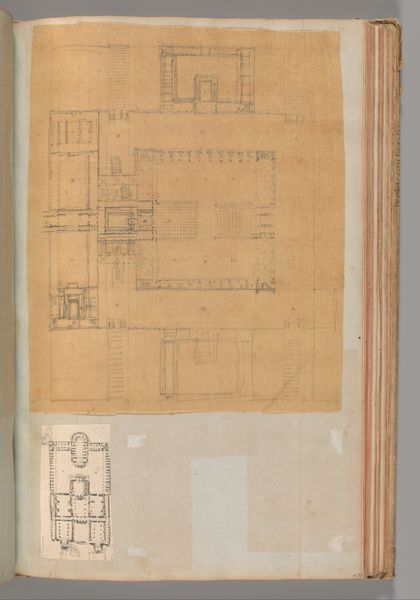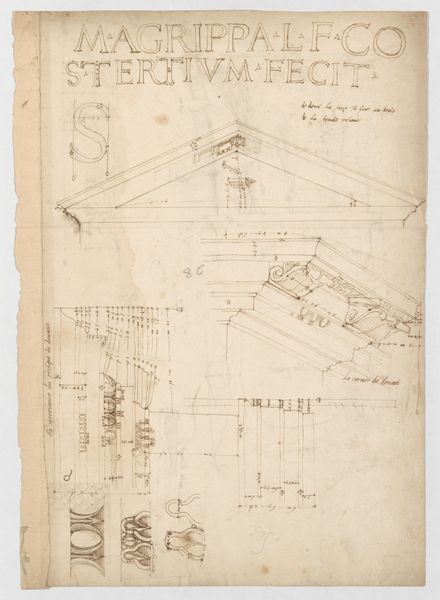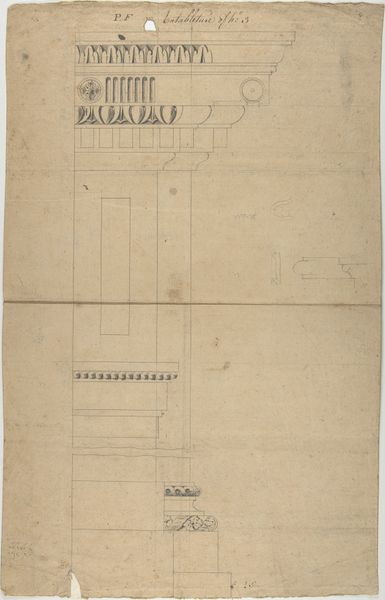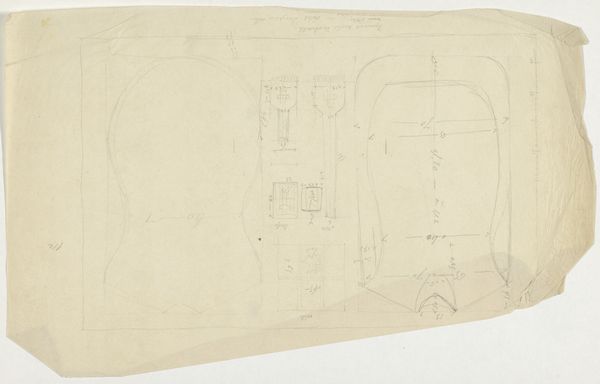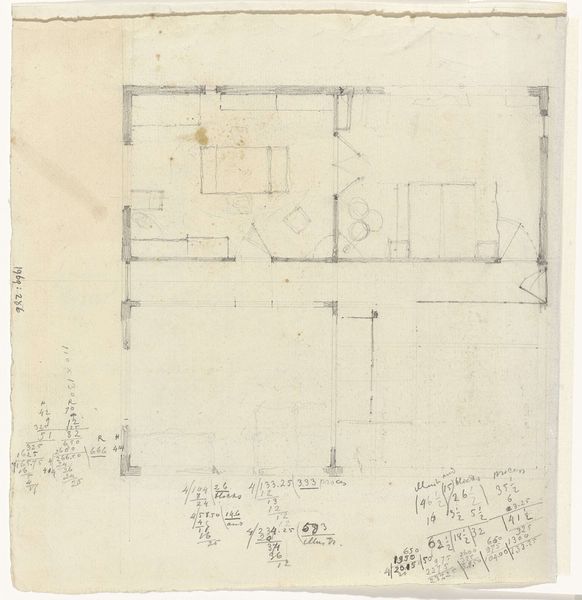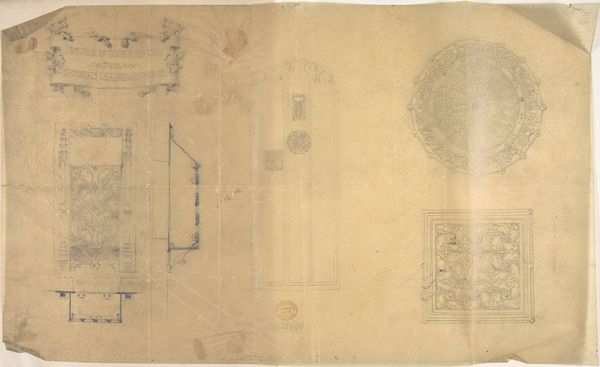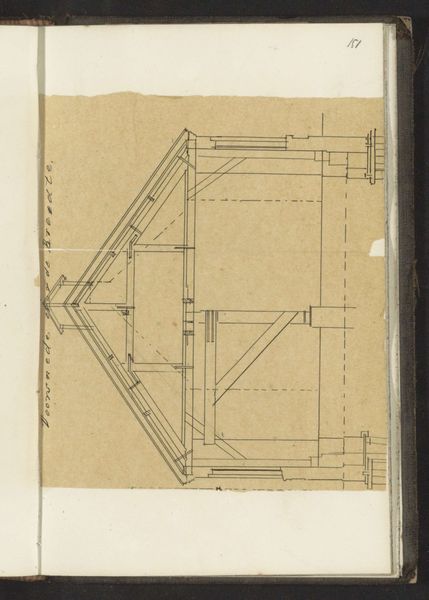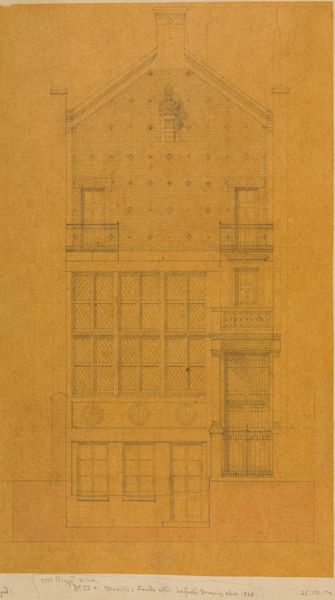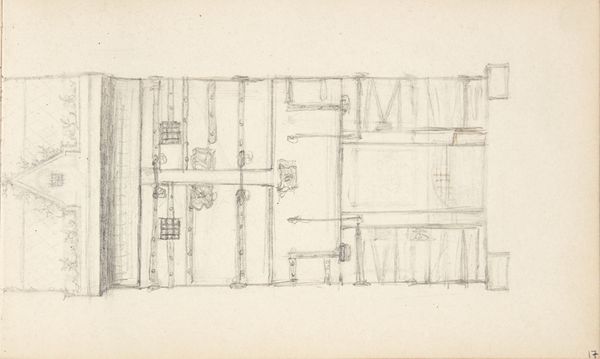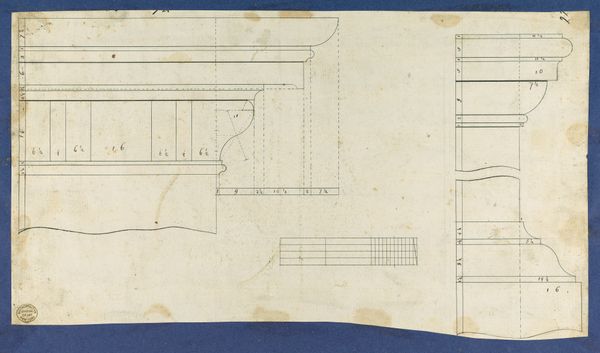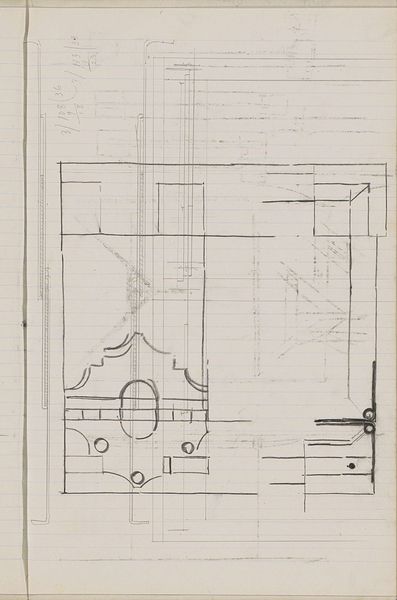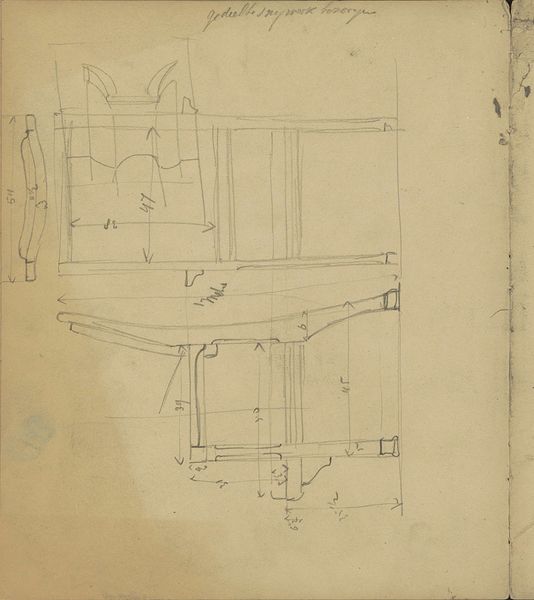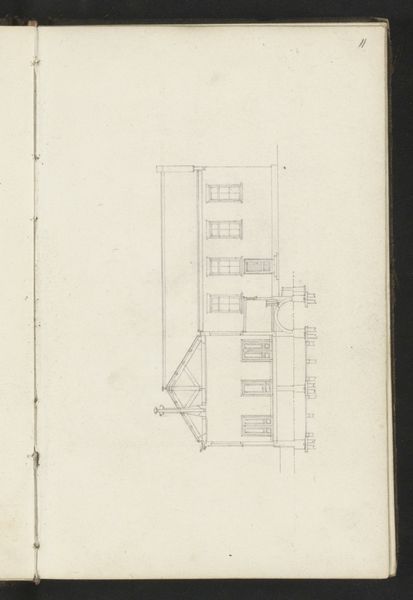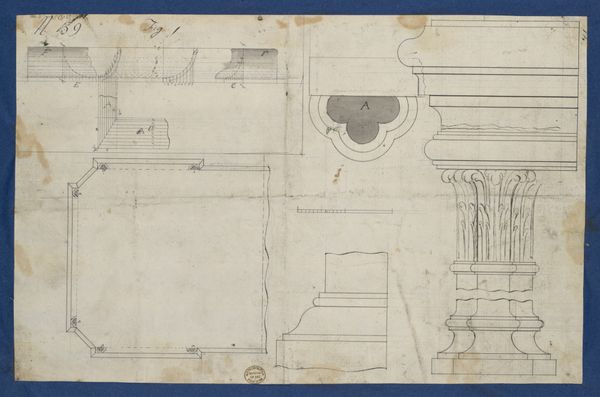
Pantheon, door elevation and details (recto) Pantheon, pilaster capital profile and projected elevation, column diagram, bronze door detail (verso) 1500 - 1560
0:00
0:00
drawing, pen, architecture
#
drawing
#
11_renaissance
#
geometric
#
line
#
pen
#
italian-renaissance
#
architecture
Dimensions: sheet: 16 5/8 x 11 13/16 in. (42.3 x 30 cm)
Copyright: Public Domain
This anonymous drawing captures the elevation and details of the Pantheon's door, showcasing the symbolic language of Roman architecture. Observe the repeated use of geometric shapes, particularly the squares and rectangles. These forms embody the Roman ideals of order, balance, and rationality. Consider the use of the square, a motif found throughout antiquity, from Egyptian temples to Renaissance paintings. It is a figure that speaks to our inherent need for stability, to build foundations that stand the test of time. Much like the Roman Empire sought to do. The design evokes a sense of permanence, a quality that resonates with the Pantheon’s function as a bridge between the earthly and the divine. The Pantheon’s architecture visually manifests a collective desire to transcend mortality. Notice how this pursuit of the eternal has been echoed through centuries of art and architecture.
Comments
No comments
Be the first to comment and join the conversation on the ultimate creative platform.
